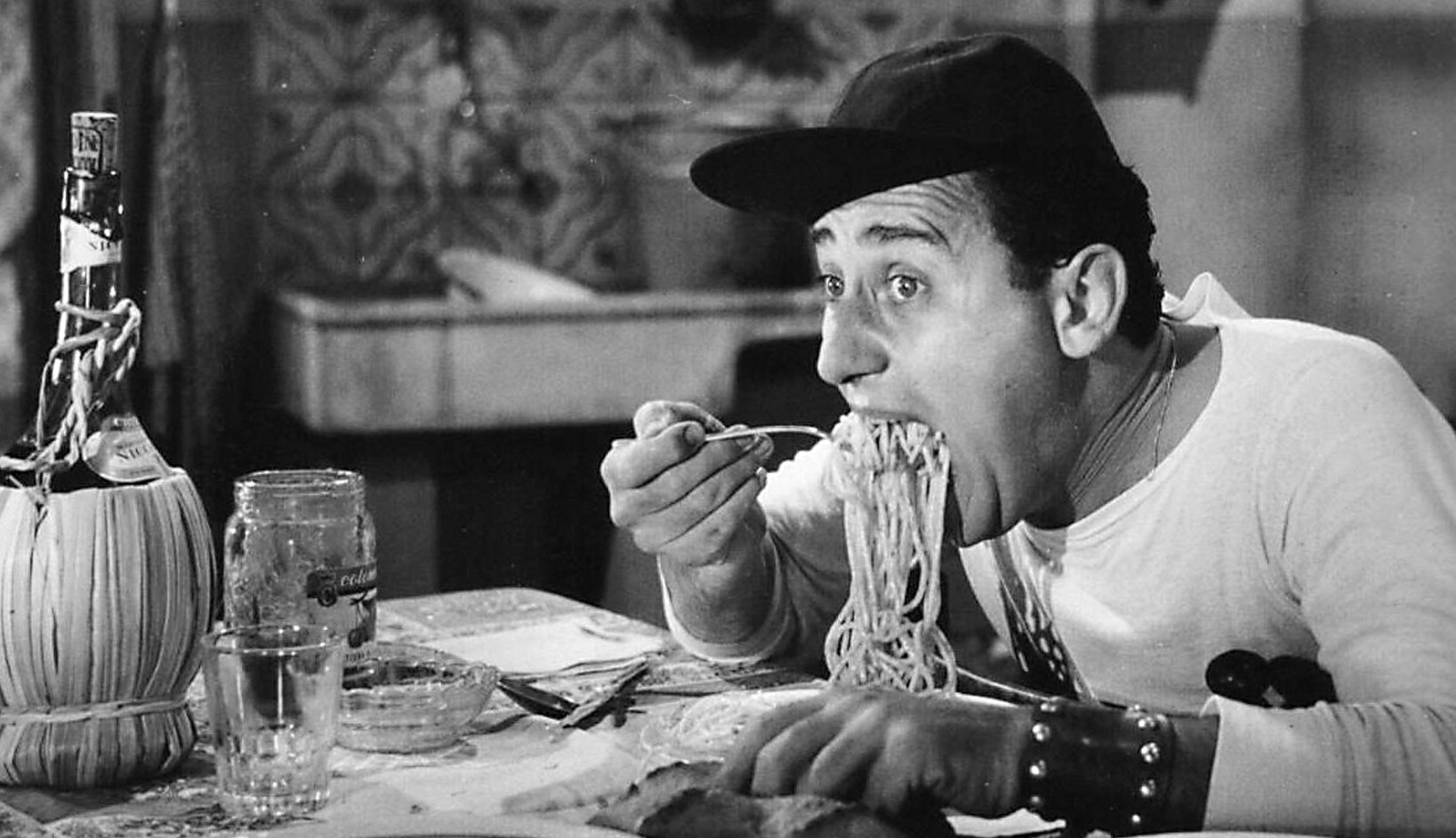On February 24th it will be 12 years since Alberto Sordi, one of the greatest if not the greatest Italian comedic actor, passed away due to heart attack.
His career spanned seven decades, starting at the end of thirties until early 2000s, and during this time he established himself as the king of comedies and light dramas. His movies have become classics, saluted as staples of Italian comedy. His characters a true portrait of the typical Italian middle class at different eras.
Sordi’s humor didn’t travel well outside of Italy, at least not as well as others’ did; his most famous role to American audiences is probably that of Antonio Badalamenti in Alberto Lattuada’s Mafioso, or the traveling merchant in Il diavolo for which he was awarded best actor at 1963’s Golden Globes. He also appeared in Mario Monicelli’s The Great War, considered by many film historians to be one of the best Italian comedies. He definitely deserves more appreciation overseas for his many and important contributions to Italian cinema.
The role that propelled him to stardom was that of Un Americano a Roma (An American in Rome). It’s a movie that came out in 1954, ten years after the end of World Word II, when the American troops were saluted as saviors and their arrival left in the Italian people a desire for the American dream that would only grow stronger in the years to come. It’s amazing how the themes depicted in the movie that were so specific to that era can still be so relevant today, when the dream of making it in America, perpetuated by Hollywood films, is as strong as it once was. Take the opening of Un Americano a Roma for example, where the off screen narration introduces the story and the main character.
The narrator identifies Christopher Columbus as the first Italian dreaming of going to America, it shows different people emulating American lifestyle being expressed in different ways, like a woman changing her diet or another one choosing dresses inspired my movie stars. It proclaims that so many Europeans dream of America, a land representing grandeur and opulence, while the Americans dream of traveling to Italy. That introduction alone can still be applied to today’s world. Americans are enamored with our great country, our great food, our lifestyle almost as much as we look up to United States to set the example. They are often in love with an idea, as seen in movies, just like it is for us.
In that context lives Nando Mericoni, the character played by Sordi, who feels like he was born in the wrong place, he encapsulates in his life everything that comes from the States: sports, clothing, food, even preferring a weird mix of marmalade and mustard on a slice of bread to our spaghetti al pomodoro, only to find out he can’t resist the temptation of the traditional dish, in what has become one of the most iconic scenes in cinema.
He speaks a language which is mostly gibberish, trying to make it sound like English but that nobody can understand. He aspires to be the Italian counterpart of Gene Kelly practicing his dance moves in a small theatre of the Roman suburbs; he dresses as an American cop imitating a motorcycle officer of an idealized Kansas Highway Patrol. (A year later the real Kansas City would grant the actor an honorary citizenship because of the continuous references in the film).
Besides the comic aspect, the film depicts a truthful picture of what it was and always has been the American Dream seen through the eyes of an Italian. During the film, in a series of flashbacks, we see the protagonist going through different adventures, in which his love for everything American gets all the people around him in trouble, while he is completely oblivious to the consequences of his behavior. He often manages to pull through at the last minute and keep living his fantasy up to a finale (inspired by the movie Fourteen Hours by Henry Hathaway) that could have been the coronation of his dream, if only.
Without spoiling the fun for those who still haven’t seen it, Nando could have gone to America and make all his dreams come true. But reality is always different from dreams, as the narrator points out. Or maybe it’s all for the better, because maybe, just maybe, the fantasy world he created in his mind would have not lived up to reality once in the States.
Something that those Italians, who actually ventured themselves into following their dreams on the other side of the ocean, quickly found out.
Rest assured that the film, the character and the actor can only be defined as legendary.






























